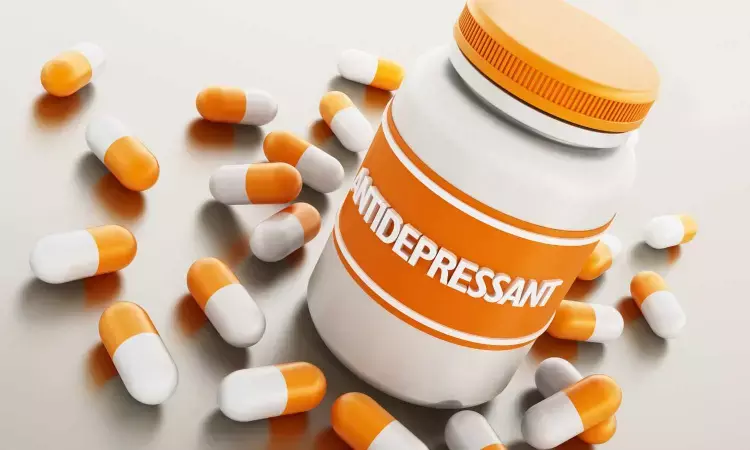- Home
- Medical news & Guidelines
- Anesthesiology
- Cardiology and CTVS
- Critical Care
- Dentistry
- Dermatology
- Diabetes and Endocrinology
- ENT
- Gastroenterology
- Medicine
- Nephrology
- Neurology
- Obstretics-Gynaecology
- Oncology
- Ophthalmology
- Orthopaedics
- Pediatrics-Neonatology
- Psychiatry
- Pulmonology
- Radiology
- Surgery
- Urology
- Laboratory Medicine
- Diet
- Nursing
- Paramedical
- Physiotherapy
- Health news
- Fact Check
- Bone Health Fact Check
- Brain Health Fact Check
- Cancer Related Fact Check
- Child Care Fact Check
- Dental and oral health fact check
- Diabetes and metabolic health fact check
- Diet and Nutrition Fact Check
- Eye and ENT Care Fact Check
- Fitness fact check
- Gut health fact check
- Heart health fact check
- Kidney health fact check
- Medical education fact check
- Men's health fact check
- Respiratory fact check
- Skin and hair care fact check
- Vaccine and Immunization fact check
- Women's health fact check
- AYUSH
- State News
- Andaman and Nicobar Islands
- Andhra Pradesh
- Arunachal Pradesh
- Assam
- Bihar
- Chandigarh
- Chattisgarh
- Dadra and Nagar Haveli
- Daman and Diu
- Delhi
- Goa
- Gujarat
- Haryana
- Himachal Pradesh
- Jammu & Kashmir
- Jharkhand
- Karnataka
- Kerala
- Ladakh
- Lakshadweep
- Madhya Pradesh
- Maharashtra
- Manipur
- Meghalaya
- Mizoram
- Nagaland
- Odisha
- Puducherry
- Punjab
- Rajasthan
- Sikkim
- Tamil Nadu
- Telangana
- Tripura
- Uttar Pradesh
- Uttrakhand
- West Bengal
- Medical Education
- Industry
Antidepressants may lower negative memories and improve overall memory function

USA: A recent study published in Frontiers in Human Neuroscience provides novel insight into the potential underlying neural mechanisms of antidepressant action on MTL function and memory.
The research from Rice University highlights the importance of taking into account the responsiveness to antidepressant treatment when examining how antidepressants impact mood and cognition.
"Antidepressants may actually reduce negative memories in individuals suffering from depression while improving overall memory function," the researchers reported.
The study examined how antidepressant use in depressed individuals affects memories, both good and bad.
Stephanie Leal, an assistant professor of psychological sciences at Rice, is the study’s lead author. She said the study’s main finding about the link between antidepressants and memories was an important one because there is still much to be learned about how these drugs work.
“While antidepressants have been around since the 1950s, we still don’t really know how they work,” Leal said. “They only work about 50% of the time, and users often have to go through multiple types of antidepressants to get to a place where they actually feel like the drugs are beneficial. We don’t fully understand how these drugs reduce depressive symptoms and why they are so often ineffective. That’s a big problem.”
The study’s results suggest that antidepressants, when effective, can shift memory dynamics toward healthy function, Leal said.
“How antidepressants affect cognition is a hugely understudied area of research,” she said. “By measuring how antidepressants impact memory, we can use this information to better select treatments depending on people’s symptoms of depression.”
The study included 48 participants ages 18-35. All individuals were surveyed and had been actively taking antidepressants (regardless of the type of antidepressant and diagnosis) for at least one month prior to participation in the study. A follow-up study is currently being conducted to examine how the brain responds to antidepressants.
Reference:
Taylor O. Phillips, Madelyn Castro, Rishi K. Vas, Lorena A. Ferguson, Amritha Harikumar, Stephanie L. Leal, Perceived antidepressant efficacy associated with reduced negative and enhanced neutral mnemonic discrimination, https://doi.org/10.3389/fnhum.2023.1225836.
Dr Kamal Kant Kohli-MBBS, DTCD- a chest specialist with more than 30 years of practice and a flair for writing clinical articles, Dr Kamal Kant Kohli joined Medical Dialogues as a Chief Editor of Medical News. Besides writing articles, as an editor, he proofreads and verifies all the medical content published on Medical Dialogues including those coming from journals, studies,medical conferences,guidelines etc. Email: drkohli@medicaldialogues.in. Contact no. 011-43720751


